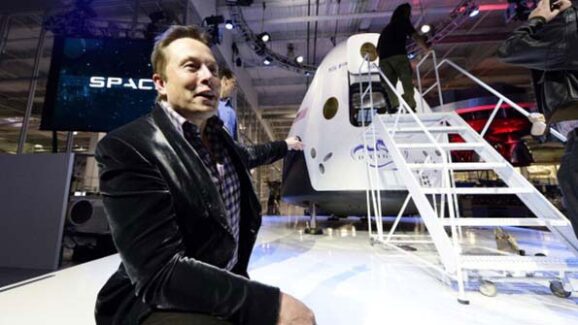Elon Musk Wants To Provide Everyone With The Internet, Here’s How He Plans To Do It
This article is more than 2 years old
 Elon Musk is at it again. How many big ideas and projects can one guy have in a lifetime? Who knows—but it doesn’t appear that he’s going to slow down anytime soon. His latest idea involves satellites that provide internet access to everyone, everywhere.
Elon Musk is at it again. How many big ideas and projects can one guy have in a lifetime? Who knows—but it doesn’t appear that he’s going to slow down anytime soon. His latest idea involves satellites that provide internet access to everyone, everywhere.
Sound familiar? That’s because Musk isn’t the first person to get attached to the idea. Google announced its Project Loon program last year, which involves delivering the internet to everyone via balloons that coast on stratospheric winds. They bought Titan Aerospace last spring because of its drones that can hang out in the air for upwards of five years. Those drones, which can provide communications capabilities to remote places, will likely factor into Google’s quest to bring internet (ie, itself) to everyone. Facebook has gotten in on the action too, buying drone-maker Ascenta after Google snatched up Titan. So powerhouse corporations have already revealed their intentions to bring internet everywhere, but in true Musk style, he says he can do it better and cheaper.
The Wall Street Journal reports that Musk is working with former Google executive Greg Wyler, who has been in the satellite industry for a long time, founding WorldVu Satellites Ltd. Wyler reportedly left Google because he doesn’t think they will be able to back up its “internet for everyone” promise because it lacks experience in manufacturing. Musk cautions readers not to believe everything the WSJ reports, and promises to make an announcement with more details early next year.
SpaceX is still in the early stages of developing advanced micro-satellites operating in large formations. Announcement in 2 to 3 months.
— Elon Musk (@elonmusk) November 11, 2014
Preliminary reports suggest that these mini satellites will be roughly 250 pounds—half the size of even the smallest satellites in use right now—and that Musk could use upwards of 700 of them—10 times more than the largest fleet currently in use—to deliver internet services at light speed. WorldVu has already licensed a big chunk of radio spectrum, which will come in handy.
It seems that Musk wants to deliver internet capabilities without restriction, though it’s hard to imagine those services coming for free. But given Musk’s M.O. thus far, it’s likely that those services will underbid his competition. Estimates suggest that the venture will cost upward of $1 billion. It’s also possible that Musk and Wyler will begin manufacturing their own satellites, and of course, we all know who and what will launch them.












